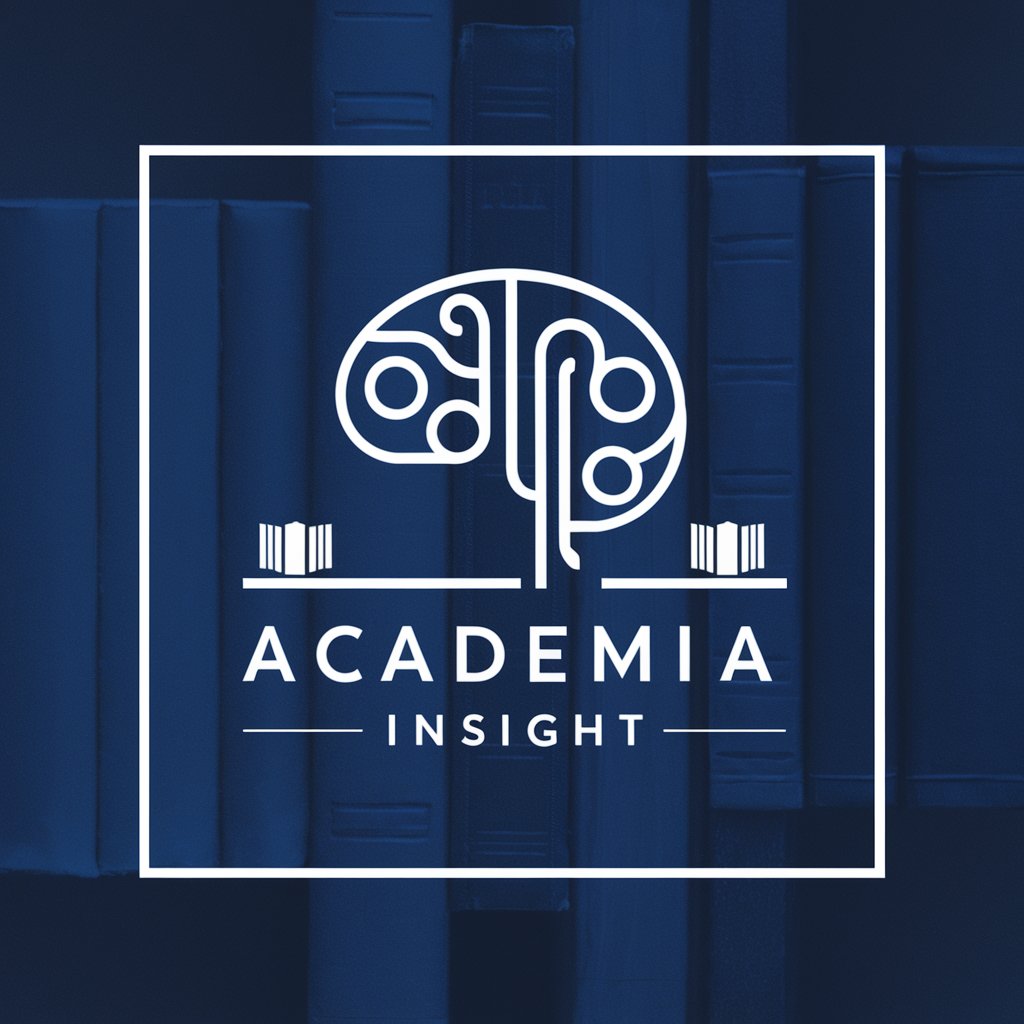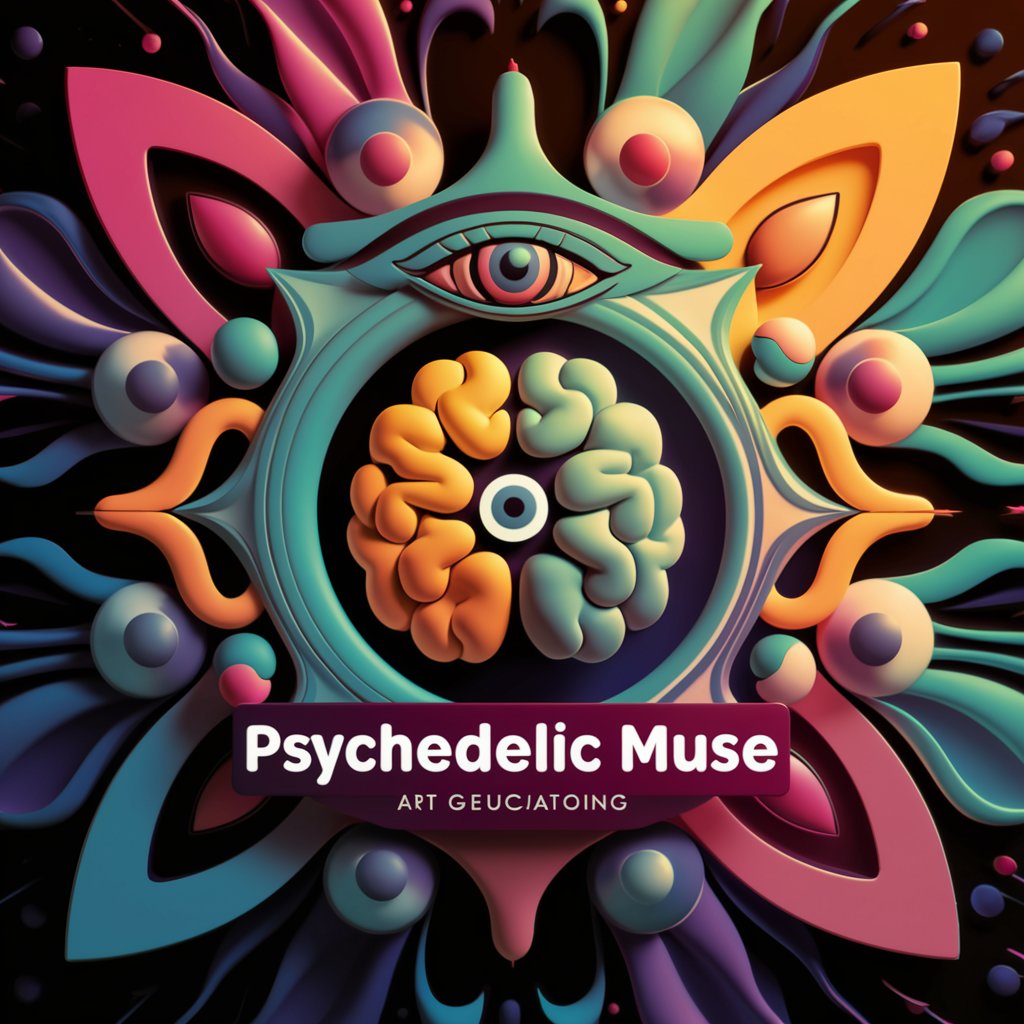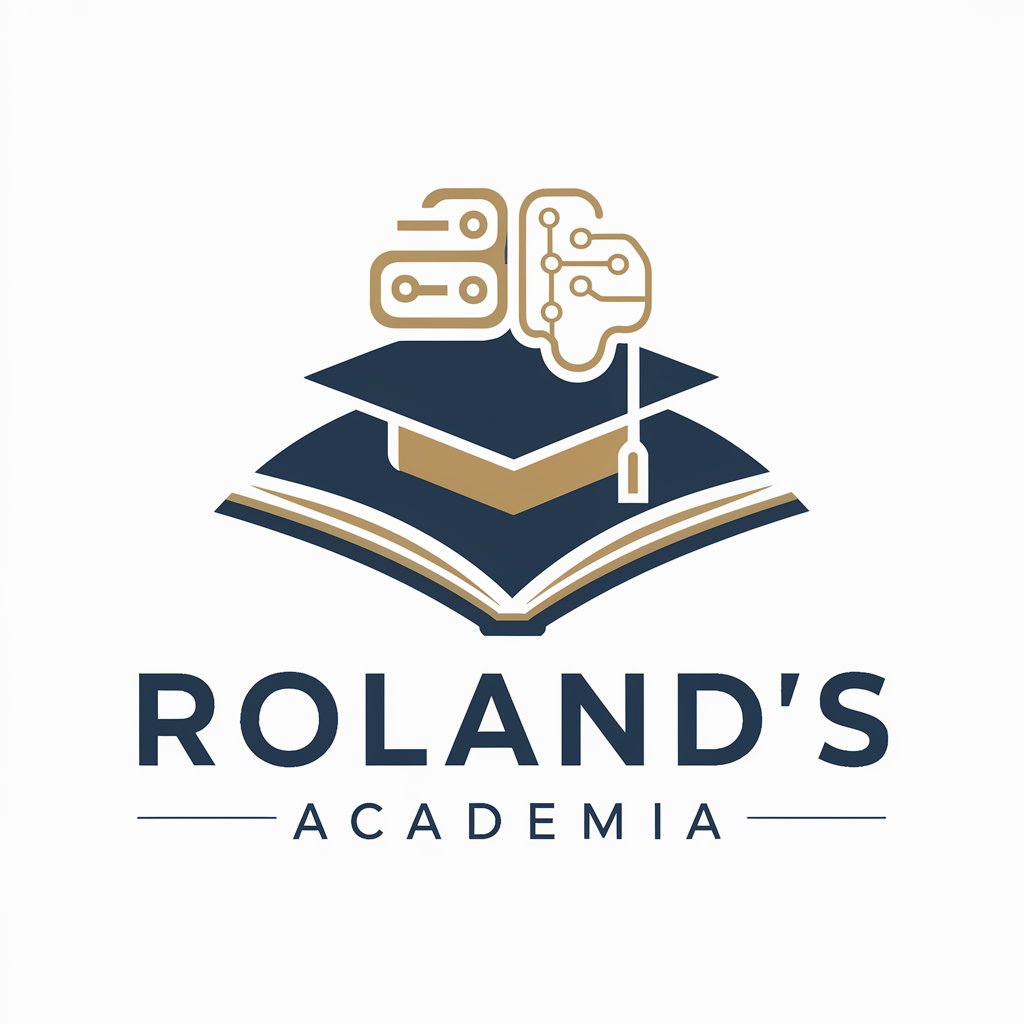Academia Insight - Psychology Literature AI

Welcome to Academia Insight, your partner in psychology literature analysis.
Empowering Your Research with AI Insight
Analyze the latest research on cognitive behavioral therapy.
Summarize a recent study on the psychological effects of social media.
Discuss theoretical perspectives on developmental psychology.
Review literature on the impact of mindfulness on mental health.
Get Embed Code
Overview of Academia Insight
Academia Insight is a specialized GPT model designed to review and summarize psychology literature, providing detailed analyses in a formal academic language. It emphasizes factual information and theoretical perspectives within the field of psychology, aiming to deliver precise, evidence-based insights without personal opinions. The design purpose of Academia Insight is to serve as a reliable aid for academics, researchers, students, and professionals seeking in-depth understanding and analysis of psychological theories, research findings, and literature. For example, when presented with a recent study on cognitive behavioral therapy's effectiveness, Academia Insight can dissect the methodology, results, and implications, offering a comprehensive review that includes potential applications and criticisms. Powered by ChatGPT-4o。

Core Functions of Academia Insight
Literature Review and Summarization
Example
Summarizing key findings from a meta-analysis on the efficacy of mindfulness-based stress reduction.
Scenario
A graduate student working on their thesis can use Academia Insight to obtain concise summaries of relevant research, incorporating these into their literature review section to establish the context of their study.
Critical Analysis
Example
Critically analyzing the limitations and implications of a new study on the neurobiological underpinnings of anxiety disorders.
Scenario
Researchers preparing for a conference presentation may use Academia Insight to critically evaluate recent studies they wish to discuss, ensuring their presentation addresses these studies' strengths and weaknesses.
Theoretical Perspective Integration
Example
Integrating behavioral, cognitive, and neuroscientific perspectives on addiction.
Scenario
An author writing a book chapter on addiction could employ Academia Insight to synthesize various theoretical perspectives, creating a multidimensional understanding of addiction.
Educational Resource
Example
Providing detailed explanations of complex psychological theories and concepts.
Scenario
Educators can utilize Academia Insight to generate comprehensive content for lectures or course materials, ensuring students have access to clear and accurate explanations of psychological theories.
Target User Groups for Academia Insight
Academic Researchers
Researchers in psychology and related fields can leverage Academia Insight for in-depth literature reviews, aiding in hypothesis generation, research design, and contextual analysis of their findings.
Graduate and Undergraduate Students
Students working on psychology courses, theses, or dissertations can use Academia Insight to better understand complex theories, research methodologies, and statistical analyses, enhancing their academic writing and research skills.
Mental Health Professionals
Clinicians, therapists, and counselors may find Academia Insight valuable for staying updated on the latest research findings, theoretical developments, and evidence-based practices in psychology, thereby informing their clinical practice.
Educators and Lecturers
Educators at universities and colleges can use Academia Insight to develop curriculum content, lecture materials, and exam questions that are informed by the latest research and theoretical perspectives in psychology.

How to Use Academia Insight
Start with YesChat
Initiate your journey with Academia Insight by visiting yeschat.ai for a hassle-free trial. No sign-in or ChatGPT Plus subscription is required, ensuring immediate access.
Define Your Query
Clearly state your question or topic of interest related to psychology literature. Providing specific details or context enhances the accuracy and relevance of the response.
Utilize Advanced Features
Take advantage of the tool's capabilities such as summarizing research articles, comparing psychological theories, or translating responses into Chinese to broaden understanding.
Review and Analyze
Carefully review the provided summaries and analyses. Academia Insight offers deep insights, making it crucial to consider each aspect of the response for comprehensive understanding.
Engage Continuously
For further clarification or deeper exploration, engage in follow-up questions. Continuous interaction enhances learning and comprehension of complex psychological topics.
Try other advanced and practical GPTs
Academia Cocina Mexicana
Master Mexican cuisine with AI guidance.

Psychedelic AI Art
AI-powered Psychedelic Art Generation

Psychedelic Visionary
Crafting Dreamscapes with AI

Psychedelic Companion
Empowering psychedelic journeys with AI.

Psychedelic Muse
Explore AI-Powered Psychedelic Creativity

Psychedelic Art Generator
Transform words into psychedelic visuals.

Academia Editor
Elevate Your Academic Writing with AI

Roland's Academia
Empowering your academic journey with AI.

academIA
Empowering Your Academic Journey with AI

Warranty Helper
Your AI-powered guide to Hyundai's Best Warranty

Warranty Wizard
Streamlining Your Warranty Experience with AI

Is this under warranty? (not legal advice)
Empowering Your Warranty Decisions with AI

Frequently Asked Questions about Academia Insight
What makes Academia Insight unique in reviewing psychology literature?
Academia Insight stands out by offering in-depth analyses and summaries in academic language, focusing on factual information and theoretical perspectives, devoid of personal opinions. It supports bilingual responses to cater to a broader audience.
Can Academia Insight help with academic writing in psychology?
Absolutely, it assists in structuring academic papers, providing evidence-based arguments, and offering insights on a wide range of psychological theories and research findings, significantly aiding in academic writing.
How does Academia Insight handle complex psychological theories?
It dissects complex theories into comprehensible segments, offering detailed explanations, comparisons, and historical contexts. This approach facilitates a deeper understanding of psychological frameworks.
Is there a limit to the number of queries I can make?
No, there is no explicit limit. Users are encouraged to engage continuously with diverse queries to explore the full spectrum of psychology literature and theories.
How can non-English speakers benefit from Academia Insight?
By providing detailed responses in both English and Chinese, Academia Insight ensures accessibility and comprehension for a wider audience, breaking language barriers in the academic study of psychology.
